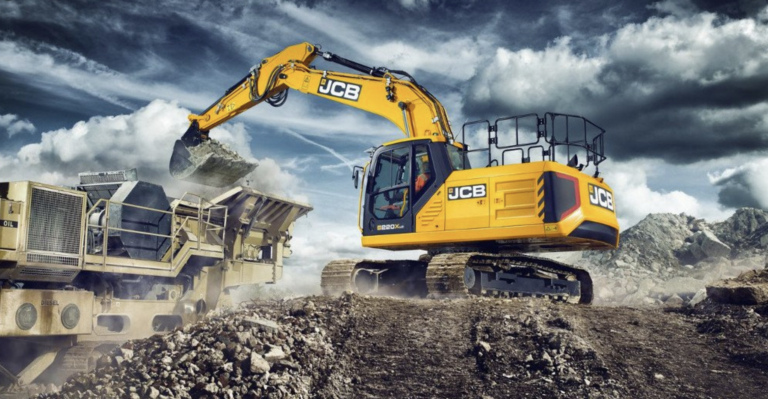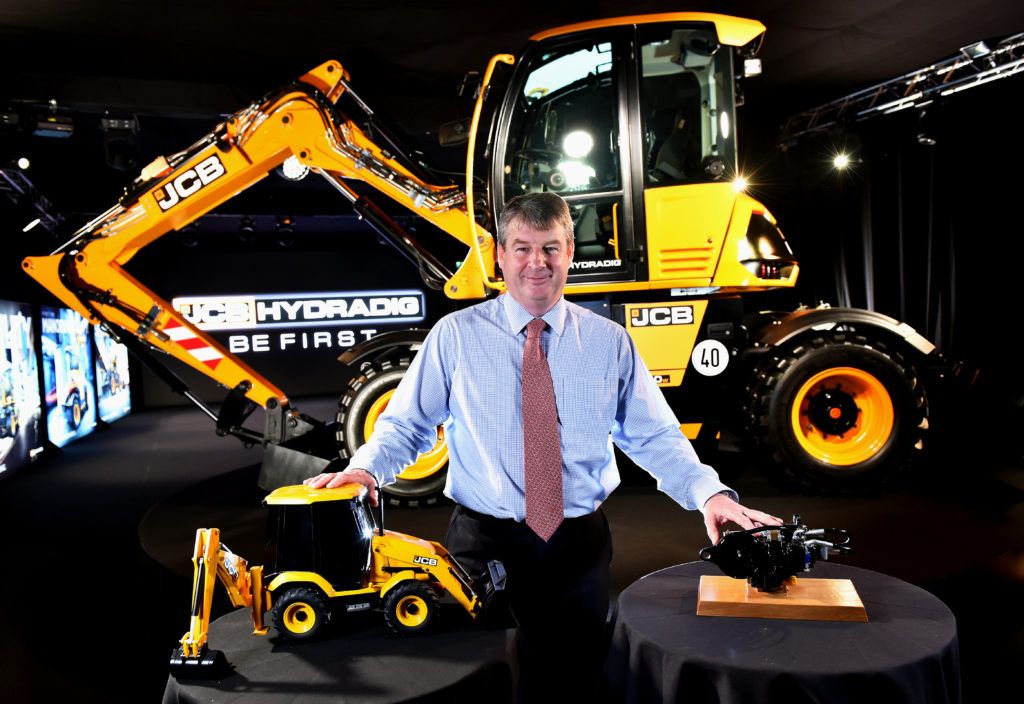The drive to produce zero emission vehicles is intensifying as governments legislate in response to the climate crisis. While pure electric and hybrid solutions are seen as the go-to for small and medium sized vehicles, a major challenge for clean energy solutions lies in their applicability in the heavy-duty and off-highway vehicle sectors. Alastair Hayfield, senior research director for commercial vehicles with Interact Analysis considers how hydrogen investment in the UK from JCB and Wrightbus has the potential to drive the UK’s hydrogen sector.
Two major UK initiatives underway
JCB’s hydrogen-fuelled internal combustion engine
One of the issues around the development of fuel cell or full-electrification technology for large off-highway vehicles is the prohibitive cost of product development. Another is the challenge of producing emission-free technology that has the guts to power heavy work for long periods. JCB, the UK-based construction machinery manufacturer, has announced that it has found a solution – the adaption of internal combustion engines so they can be powered by hydrogen. It’s not a completely unique concept – people may recall the ULEMCo-JCB-Bucher collaboration to produce a hydrogen road sweeper for Aberdeen City in November 2020. Now JCB say they are the first company to produce a hydrogen motor for the heavy machinery sector. This is not fuel cell technology; hydrogen is burnt, in the same way as diesel, but its emissions are CO2-free. The benefit is that the technology requires very few modifications to be made to existing internal combustion engines. Cost-wise, JCB says it offers the benefits of adapting already proven engine technology, using readily available components. The company says its prototype hydrogen-powered backhoe loader, fitted with the new hydrogen motor, can perform exactly the same function as its diesel equivalent.
Wrightbus – significant investment in hydrogen fuel cell technology
The BBC reported on 22nd March that Wrightbus, the Northern Ireland-based bus manufacturer, had secured £11.2m of government funding for hydrogen fuel cell technology development. This money is being used to create a centre of excellence for zero emission technology, and it follows a well-publicised commitment to hydrogen bus technology from chairman Jo Bamford – of the JCB-owning Bamford dynasty – which took over the firm in 2019.
A boost for UK hydrogen?
The Bamford family has shown a clear commitment to hydrogen technology – and have put significant amounts of money into it. This obviously has a significant impact: JCB is one of the world’s largest manufacturers of construction machinery. Meanwhile, Wrightbus is one of the UK’s ‘big three’ bus manufacturers. Their commitment to hydrogen technology will have a significant impact on the UK’s hydrogen sector, encouraging companies in the UK hydrogen value chain both to ramp up production manufacture of hydrogen and also to invest more heavily in hydrogen logistics and distribution networks.
Could Wrightbus and JCB be the green shoots of hydrogen vehicle technology in the UK? Are we about to see major growth in the UK hydrogen infrastructure and the country’s hydrogen economy as a whole?
Interact Analysis’s recent reports on the global commercial vehicles (trucks and buses) and off-highway vehicles markets projected significant growth in UK hydrogen fuel cell technology. For example, the UK’s hydrogen fuel cell city bus market is projected to top 425 units delivered annually by 2030, while the equivalent figure for inter-city buses is 1,278, and any new technology developed is likely to also impact the UK’s truck market (current projections for UK fuel cell-powered long-haul trucks are 5,124 units delivered annually by 2030).
When it comes to UK off-highway, a total of 3,360 hydrogen fuel cell-powered off-highway vehicles will be delivered annually in the UK market by 2029 (an adoption rate of 3%). Backhoe loaders – the vehicle which JCB has prototyped for its hydrogen fuelled internal combustion engine concept – are projected to have zero annual fuel cell registrations right out to 2029. The truth is that most categories of off-highway vehicle are predicted to have very limited adoption of fuel cell technology, with the exception being lift trucks for which 2,624 annual registrations are predicted by 2029. When it comes to full battery electric technology, larger off-highway vehicle categories expect tiny adoption rates. To return to the example of backhoe loaders, our research shows that there will be 84 battery electric registrations annually by 2029.
With all this in mind, it would appear that the Wrightbus investment into fuel cells has had a definite impact on the UK bus market. When it comes to off-highway’s adoption of hydrogen internal combustion engines, however, big questions remain.
JCB may have the technology, but will it sell?
JCB has challenges ahead with its hydrogen-fuelled internal combustion engine concept. It is an accepted fact that burning hydrogen as a fuel is less efficient than using it in hydrogen fuel cells and far less efficient than battery electric vehicles. And hydrogen is expensive to produce as it takes a lot of energy to create. On top of that, making hydrogen from renewables is a long way off in terms of cost parity compared to making it from fossil fuels. Will off-highway vehicle operators be happy to use this expensive fuel in such an inefficient way? Probably not in the long-term if fuel cell technology does come on stream in a big way.
Also, although CO2 emissions are zero, NO2 is produced in the combustion process, though this can be minimized with catalytic converters. Those emissions might well mean that such machinery cannot be used in certain settings due to government regulations. Storage is likewise an issue. Hydrogen is a highly volatile gas which must be stored under pressure in special tanks. Issues of safety make it much harder to store hydrogen on a construction site than diesel – so to claim that a hydrogen powered internal combustion engine is just as easy to use as a diesel engine is wide of the mark.
Finally, we come to the issue of scale. The total global off-highway vehicle market (all vehicle types and all powertrains) was five million annual units delivered in 2020. This stands in stark contrast to the scale of the on-highway commercial vehicle market where total unit deliveries (all vehicle types and all powertrains) was close to 13 million units delivered annually in 2020 (this number was lower than usual due to COVID – typically the market is above 15 million).
And it pales into insignificance compared to the market for passenger cars. JCB says that internal combustion engines have “an important ongoing role” in their future hydrogen format. But are they correct about this? If the technology is to remain relevant in the long-term, it will need significant R&D investment over time, and this will only happen if the market is very large. Unless other vehicle categories, such as trucks and buses, adopt hydrogen powered internal combustion technology, then it seems more likely that the R&D investment into fuel cells and batteries will ultimately push these technologies to the point where they are suitable for all vehicle types.
JCB has found a short term solution that can decarbonise the largest off-highway vehicles today, and for this they should be applauded. Taken together, the investments from JCB and Wrightbus into hydrogen technology will drive UK hydrogen infrastructure. The question is: does hydrogen fuelled internal combustion have a long-term, broad future?





